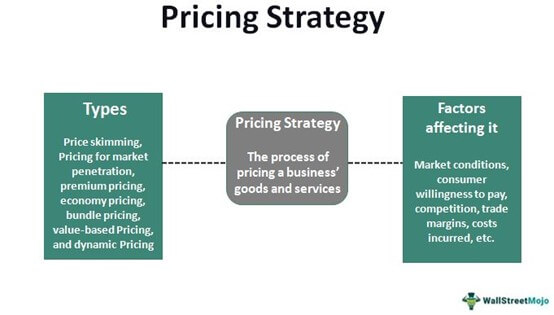
In the ever-evolving landscape of finance, the ability to navigate complex financial systems is paramount for both individuals and businesses. “Mastering Finance with Sharan” serves as a comprehensive guide that delves into the intricacies of financial management, investment strategies, personal finance, and more. Sharan, a seasoned expert in the field, brings a wealth of knowledge and practical insights that empower learners to take control of their financial destinies.
This program is not merely an academic exercise; it is a transformative journey that equips participants with the tools necessary to make informed financial decisions. The significance of mastering finance cannot be overstated. In a world where financial literacy is often lacking, understanding the principles of finance can lead to better decision-making, increased savings, and ultimately, wealth accumulation.
Sharan’s approach emphasizes real-world applications, ensuring that learners can translate theoretical concepts into actionable strategies. By engaging with this material, individuals can cultivate a mindset geared towards financial success, enabling them to thrive in both personal and professional realms.
Key Takeaways
- Mastering Finance with Sharan provides a comprehensive overview of financial management, investment strategies, personal finance, risk management, credit and debt management, and advanced financial concepts.
- Financial management involves making strategic decisions about how to allocate resources to achieve financial goals, and understanding the basics is crucial for success.
- Investment strategies and portfolio management are essential for building and maintaining wealth, and this section explores different approaches to investing and managing a diverse portfolio.
- Personal finance and budgeting are key components of financial success, and learning how to effectively manage income and expenses is essential for achieving financial stability.
- Risk management and insurance play a critical role in protecting assets and managing potential financial losses, and understanding these concepts is important for safeguarding financial well-being.
Understanding the Basics of Financial Management
At the core of financial management lies the fundamental principle of resource allocation. Financial management involves planning, organizing, directing, and controlling financial activities such as procurement and utilization of funds. A solid grasp of these basics is essential for anyone looking to manage their finances effectively.
Key components include understanding financial statements, budgeting, forecasting, and cash flow management. Each of these elements plays a critical role in ensuring that an individual or organization can meet its financial obligations while pursuing growth opportunities. Financial statements, including balance sheets, income statements, and cash flow statements, provide a snapshot of an entity’s financial health.
For instance, a balance sheet reveals what an organization owns versus what it owes at a specific point in time. This information is crucial for assessing liquidity and solvency. Budgeting, on the other hand, involves creating a plan for how to allocate resources over a specific period.
It requires an understanding of both fixed and variable costs and helps in setting financial goals. By mastering these foundational concepts, individuals can build a robust framework for making sound financial decisions.
Exploring Investment Strategies and Portfolio Management

Investment strategies are pivotal for wealth accumulation and long-term financial stability. Sharan emphasizes the importance of diversification in portfolio management—a strategy that involves spreading investments across various asset classes to mitigate risk. For example, an investor might allocate funds into stocks, bonds, real estate, and commodities to create a balanced portfolio that can withstand market volatility.
This approach not only reduces the impact of poor performance in any single investment but also enhances the potential for overall returns. Moreover, understanding different investment vehicles is crucial for effective portfolio management. Stocks represent ownership in a company and can offer high returns but come with higher risk.
Bonds, conversely, are debt instruments that typically provide lower returns but are considered safer investments. Real estate can serve as both an investment and a means of generating passive income through rental properties. By analyzing these options and aligning them with personal risk tolerance and financial goals, individuals can craft a tailored investment strategy that maximizes their potential for growth while minimizing exposure to risk.
Diving into the World of Personal Finance and Budgeting
| Topic | Metrics |
|---|---|
| Savings | Percentage of income saved |
| Expenses | Breakdown of monthly expenses |
| Investments | Rate of return on investments |
| Debt | Total amount of debt |
| Income | Net income after taxes |
Personal finance encompasses a wide array of topics that affect individuals’ financial well-being. At its core, personal finance involves managing one’s income, expenses, savings, and investments to achieve financial goals. Sharan advocates for a proactive approach to personal finance that begins with creating a detailed budget.
A budget serves as a roadmap for spending and saving, allowing individuals to track their financial activities and make informed decisions about their money. Creating an effective budget requires an honest assessment of income sources and expenditures. Individuals should categorize their expenses into fixed costs—such as rent or mortgage payments—and variable costs—like dining out or entertainment.
By identifying areas where spending can be reduced or eliminated altogether, individuals can redirect those funds towards savings or investments. Additionally, Sharan emphasizes the importance of setting short-term and long-term financial goals within the budgeting process. Whether it’s saving for a vacation or planning for retirement, having clear objectives helps maintain motivation and discipline in managing finances.
Learning about Risk Management and Insurance
Risk management is an essential aspect of financial planning that involves identifying potential risks and implementing strategies to mitigate them. Sharan highlights that every investment carries some level of risk; therefore, understanding how to manage these risks is crucial for protecting one’s financial future. This includes not only investment risks but also personal risks such as health issues or property damage.
Insurance plays a vital role in risk management by providing financial protection against unforeseen events. Different types of insurance—such as health insurance, life insurance, property insurance, and liability insurance—serve various purposes in safeguarding assets and ensuring peace of mind. For instance, health insurance protects against high medical costs that could otherwise deplete savings or lead to debt.
Life insurance provides financial security for dependents in the event of an untimely death. By evaluating personal circumstances and potential risks, individuals can make informed decisions about the types and amounts of insurance coverage they need.
Understanding the Importance of Credit and Debt Management

Understanding Credit Scores
Understanding how credit scores are calculated is crucial for effective credit management. Credit scores are based on factors such as payment history, credit utilization ratio, length of credit history, types of credit used, and recent inquiries.
Effective Debt Management
Debt management is equally critical in achieving financial stability. Many individuals find themselves overwhelmed by debt from student loans, credit cards, or mortgages. Developing a strategic plan to manage debt effectively is essential. This may involve prioritizing high-interest debts first while making minimum payments on others or consolidating debts into a single loan with a lower interest rate.
Achieving Financial Stability
By taking control of credit and debt management, individuals can improve their financial health and work towards achieving their long-term goals. Creating a repayment schedule can help individuals stay organized and committed to becoming debt-free.
Exploring Advanced Financial Concepts and Wealth Building
As individuals become more comfortable with basic financial principles, they may wish to explore advanced concepts that can further enhance their wealth-building strategies. Sharan introduces topics such as asset allocation, tax optimization strategies, and retirement planning as essential components of advanced financial literacy. Asset allocation involves strategically dividing investments among different asset classes based on risk tolerance and investment goals.
This nuanced approach allows investors to optimize returns while managing risk effectively. Tax optimization is another critical area where advanced knowledge can lead to significant savings over time. Understanding tax brackets, deductions, credits, and tax-advantaged accounts—such as IRAs or 401(k)s—can help individuals minimize their tax liabilities while maximizing their investment growth potential.
Retirement planning is also paramount; it requires careful consideration of future income needs and lifestyle choices post-retirement. By employing advanced strategies in these areas, individuals can create a comprehensive wealth-building plan that aligns with their aspirations.
Applying the Lessons from Mastering Finance with Sharan
The journey through “Mastering Finance with Sharan” equips participants with invaluable insights into managing finances effectively across various domains—from personal budgeting to advanced investment strategies. The lessons learned throughout this program are not merely theoretical; they are practical tools that can be applied in everyday life to foster financial literacy and empowerment. By embracing these principles, individuals can take charge of their financial futures with confidence.
Ultimately, mastering finance is about more than just numbers; it’s about cultivating a mindset that values informed decision-making and strategic planning. As participants apply the lessons learned from Sharan’s expertise, they will find themselves better prepared to navigate the complexities of the financial world—whether it be through effective budgeting practices or sophisticated investment strategies—leading them toward greater financial independence and success.
FAQs
What is the Finance with Sharan Masterclass about?
The Finance with Sharan Masterclass is a comprehensive course designed to provide participants with a deep understanding of finance, including topics such as investment strategies, financial planning, and wealth management.
Who is Sharan Masterclass?
Sharan Masterclass is a renowned expert in the field of finance, with years of experience in investment banking, financial analysis, and wealth management. He is known for his practical and insightful approach to teaching finance concepts.
What topics are covered in the Finance with Sharan Masterclass?
The masterclass covers a wide range of topics, including but not limited to:
– Investment strategies
– Financial planning
– Wealth management
– Risk management
– Portfolio diversification
– Asset allocation
– Retirement planning
Who can benefit from the Finance with Sharan Masterclass?
The masterclass is suitable for individuals at all levels of financial literacy, from beginners to experienced professionals. It is ideal for anyone looking to gain a deeper understanding of finance and improve their financial decision-making skills.
How can I enroll in the Finance with Sharan Masterclass?
Enrollment details for the Finance with Sharan Masterclass can be found on the official website or through authorized course providers. Typically, participants can register online and gain access to the course materials and resources.










